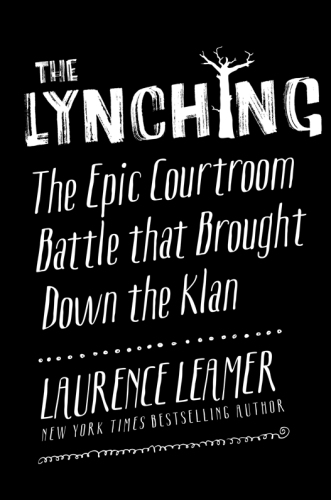
The Lynching
The Epic Courtroom Battle That Brought Down the Klan
کتاب های مرتبط
- اطلاعات
- نقد و بررسی
- دیدگاه کاربران
نقد و بررسی

April 18, 2016
The prolific Leamer (The Price of Justice)swiftly traces the entwined lives of three Alabama menâcivil rights lawyer Morris Dees, Gov. George Wallace, and top Klansman Robert Sheltonâduring and following the civil rights movement. Bookending this tripartite biography are two legal cases concerning the 1981 murder of Michael Donald, a young black man lynched by United Klans of America (UKA) members in Mobile County. The ensuing investigation and criminal trial reveal lingering sympathies for white supremacy. During Shelton's time as imperial wizard, Klansmen had attacked Freedom Riders in collusion with local cops and bombed the 16th Street Baptist Church. Leamer details Shelton's privileged relationship with Governor Wallace, who rode populist racism into the state's executive office and ran for president, showing how Wallace stoked rage against integration while carefully distancing himself from racist violence. As a student, Dees worked for Wallace's gubernatorial campaign and had even defended a Klansman in court. By the time he files a civil lawsuit against Shelton and the UKA over Donald's death, intending to bankrupt the organization, Dees is a changed man. Leamer's slice of American civil rights history prefers courtrooms and the Capitol to churches and the streets, with Deesâa cunning and tenacious lawyer doing dangerously unpopular workâplaying hero. This well-written, suspense-filled book vividly evokes themes from the ugly, not-so-distant past. Agent: Joy Harris, Joy Harris Literary Agency.

January 1, 2016
In 1981, when a mostly black jury failed to reach a verdict regarding a black man's killing of a white man, klansmen Henry Hays and James Knowles sought a black man to punish, ultimately leaving 19-year-old Michael Donald hanging on a lamppost. Hays was tried and sentenced to death, and Morris Dees, cofounder of the Southern Poverty Law Center, acted on behalf of Donald's mother to file a civil suit against both the local Klan and the UKA, the largest Klan organization. With a 75,000-copy first printing.
Copyright 2016 Library Journal, LLC Used with permission.

Starred review from April 15, 2016
A powerful account of how a Ku Klux Klan-sanctioned lynching in Mobile, Alabama, paved the way for legal victories against such hate groups.Prolific journalist Leamer (The Price of Justice: A True Story of Greed and Corruption, 2013, etc.) ably re-creates this ugly flash point within a sprawling narrative about race relations and white supremacy's gradual weakening, noting that even after the victories and bitterness of the 1960s, "the Klan had what appeared to be a legitimate place in Mobile life." In 1981, young Klansmen randomly murdered 19-year-old African-American Michael Donald in retaliation for an unrelated shooting. After an initially botched investigation, the FBI and Justice Department oversaw the killers' 1983 convictions. The prosecution attracted the attention of Southern Poverty Law Center founder Morris Dees, who then represented Donald's family in a civil action against the United Klans of America, whose leaders first regarded it as "an aggravating, foolish lawsuit." In the middle third of the book, Leamer uses Dees' life as a lens, his growing devotion to legal activism contrasting with the massive resistance to civil rights embodied by his one-time mentor George Wallace, another key figure. While Dees was revolted by the Klan's violence, writes the author, "for Wallace...race was simply a fantastic political issue that he intended to parlay as far as it would go." By the time of the Donald murder, the Klan seemed diminished, yet Dees still faced threats as he built a case. Leamer develops incremental, disturbing portraits of the Klansmen, terming them "less a militant militia of white supremacist storm troopers than...a motley, disparate assembly of marginal men." Concluding with a well-paced courtroom drama, the author captures the climactic improbability of Dees' success, which bankrupted the UKA. Leamer confidently untangles the legal and social aspects of the story, showing how the South has grappled with the horrific legacy Donald's murder represents. An engrossing true-crime narrative and a pertinent reminder of the consequences of organized hatred.
COPYRIGHT(2016) Kirkus Reviews, ALL RIGHTS RESERVED.

























دیدگاه کاربران